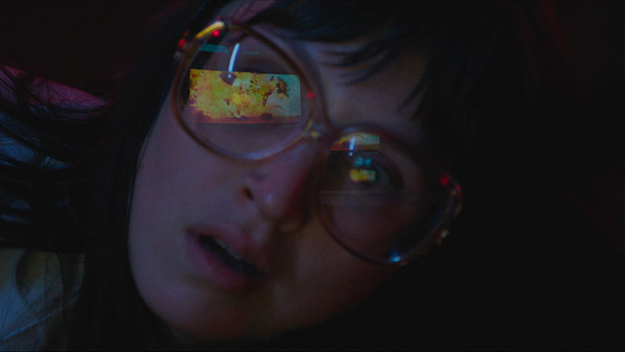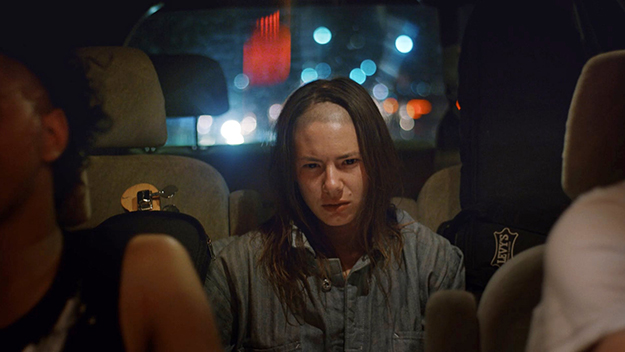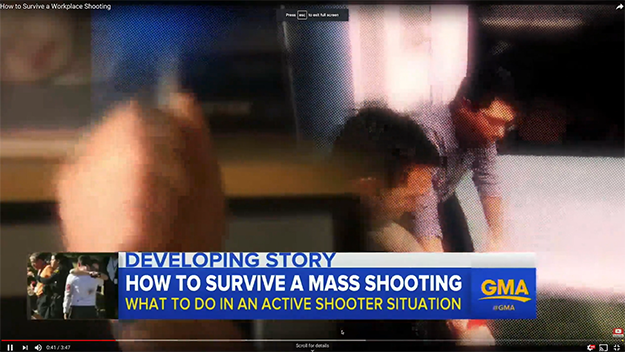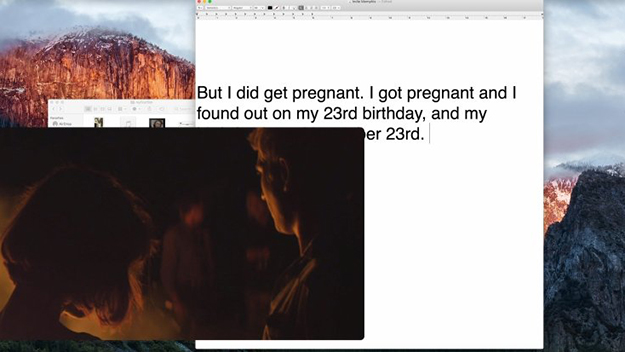Dispatch: The Borscht Film Festival

Omniboat: A Fast Boat Fantasia (The Daniels, Hannah Fidell, Alexa Lim Haas, Lucas Leyva, Olivia Lloyd, Phil Lord, Jillian Mayer, The Meza Brothers, Terence Nance, Brett Potter, Dylan Redford, Xander Robin, Julian Yuri Rodriguez, and Celia Rowlson-Hall, 2019)
There is nothing intrinsically youthful about the short film, but by virtue of the fact that so many filmmakers working in the short form during their apprenticeship period, it can sometimes be imagined, fairly or unfairly, as a kind of cinematic adolescence, a training wheels medium spent poised on the cusp of the “real world”—the feature film, that is, with its adult responsibilities and potential commercial prospects.
I was thinking about this when recently catching up with the 2010s output of Nick Zedd, as one does. Zedd, the doyen of the Cinema of Transgression, removed at the beginning of the decade from his former redoubt in the Lower East Side to a new home in Mexico City. Unlike, say, cohorts Beth B. or Lydia Lunch, the combative, prickly, acrimonious Zedd never had a cash-in, moment or attained éminence grise respectability, having almost entirely opted out of the pursuit of a proper career, leaving a long trail of enemies behind him over the course of forty years of art practice, staking out willfully and often perversely marginal positions. That being said, his films are predicated on the potential for cinema to shock the world—witness the messianic language of The Extremist Manifesto, issued as both a text and a film, a call to war against contemporary art. It’s an address that seems intended to set the world on fire, while the nature of Zedd’s alone-against-all rebellion all but ensures that even when he makes a really good film—and his 2017’s Attack of the Particle Disruptors is a great one of a kind—it will only reach a miniscule, self-selected audience.
Zedd is, as I imagine he would happily confess, an extreme case, and of course not every short film is doomed to obscurity, but generally to place one’s self in the position of the dedicated short film-maker is to experience a regular dosage the anxiety felt by so many laboring in obscure corners of a cultural scene dominated by megalithic events: the anxiety of relevance. When tentpoles and Mature Masterpieces are considered the works of self-evident value or import, the short film is the squib—the watercolor, the one-act, the novella. For the French filmmaker Bertrand Mandico—like Zedd, given to the issuance of the occasional manifesto, and as dedicated as Witold Gombrowicz to the raw “green” of adolescence—his long-standing loyalty to the short form was a way of staking out an oppositional, outsider stance, his 2017 posh-psychos-in-revolt feature Les garçons sauvages appearing only after twenty years of shorts and moyen métrages.
None of this elevation of the feature, it should be noted, has anything to do with an inherent, hierarchical superiority of the long form to the short. Like the watercolor, the one-act, or the novella, the short can give pleasure, can be a form of expression as perfect as a sonnet—any day of the week I’ll take D.W. Griffith’s A Corner in the Wheat (1909) or The Musketeers of Pig Alley (1912) over, say, the overblown Orphans of the Storm (1921). Some of my finest filmgoing experiences of last year involved shorts: Benjamin Crotty’s caroming historical burlesque Le discours d’acceptation glorieux de Nicolas Chauvin, seen at an open-air screening at the Palić European Film Festival in Serbia, or a program of early Cinema Novo works, including Leon Hirszman’s stunning 1962 A pedreira de São Diogo at the International Kurzfilmtage in Winterthur, Switzerland. A lot of features don’t have more than twelve minutes of ideas to them—Harmony Korine’s Spring Breakers doesn’t do anything in ninety-four minutes that Cyprien Gaillard’s Cities of Gold and Mirrors (2009) doesn’t do better in nine. The primacy of the feature, instead, has everything to do with financial exigencies, prestige, and the demands of the theatrical distribution model—Gabriel Abrantes was responsible for a goodly percentage of the finest, funniest short films of the 2010s, but it wasn’t until he made, with Daniel Schmidt, last year’s Diamantino, that he stood a chance of a stateside theatrical run. (The French are somewhat better in accommodating the short form—both Mandico and Abrantes’s movies have played in package deals in France.)
The Miami-based collective Borscht Corporation have for more than a decade taken a backseat to no-one in their commitment to the short form, but even strong women and men must feel the burden of hearing so many of those inevitable “So when are you making a feature?” queries, and growing pains were very much a theme of Borscht 0, the latest ten-day iteration of their irregularly recurring film festival, this one following a two-year hiatus. The irregularity of the event is due to the unique nature of its bill-of-fare: the core Borscht program is made up of works commissioned by Borscht, parceling out money to filmmakers from grant provider the Knight Foundation. They don’t order in; the meal is served whenever work’s done in the kitchen. And though there are features in the program (Bayley Sweitzer and Adam Khalil’s Empty Metal, for example), along with other inducements (the now-Florida-based Korine was there, playing a collection of skate videos), the Borscht-generated films have to-date been short-form operations.

Empty Metal (Bayley Sweitzer and Adam Khalil, 2018)
I first became aware of the Borscht family on encountering a smattering of their films playing a shorts programs at South by Southwest in 2013, where I met co-founder Lucas Leyva and his collaborator Jillian Mayer—both core Borscht Corp. personnel, who’ve made several films together as mayer/leyva. In a field of indistinguishably competent calling card movies, their #PostModem (2012) was something else, junky and hysterical and totally switched-on to the way we’d been rewired through living half of our lives online. I was then in my early thirties and only in the first phase of decrepitude and obsolescence; they were younger and with it in the way actually young people are; I remember they were making a point of hitting the events in the “Interactive” section of the tripartite festival, focused on tech innovations and new media, rather than the films, because Interactive was “where the people who’re deciding on the future” were.
And the future comes on pretty fast. Several Borscht affiliates have achieved a new prominence in the interceding years. Terence Nance, who made the lyrical Swimming in Your Skin Again for 2014’s Borscht 9, has an HBO series, Random Acts of Flyness. Barry Jenkins, whose short Chlorophyl played Borscht back in 2011, has an Academy Award. The O.G. Borscht organizers have by now passed the Logan’s Run age. On the stage of Miami’s Scottish Rite Temple last November, Leyva, just on the far side of thirty, joked about having gotten old while introducing “Bisquetopia,” a program of shorts produced under the auspices of Bisque Corp.—the name taken on by a new, younger generation of Borscht filmmaking fellows, tasked with forming a collective of their own. How does an event that throughout its existence been markedly young—in the midst of a film culture that is markedly graying—go on once the sweet bird of youth has flown? One solution is this infusion of young blood, a passing of the torch.
The Borscht program the following night was a monumental shorts block, a great disgorging of commissioned material. Standouts included Dylan Redford’s Emergency Action Plan (EAP), a poker-faced satire of life in a country that demands eternal vigilance against the possibility of an active shooter incident; Khalil and Adam Prion’s Allapatah, concerning the long tradition of Seminole alligator wrestling, and illustrating its obvious professional hazards; and, perhaps best of all, Corey Hughes’s MyToeShoes.Com, in which a YouTube unboxing video, and subsequent perambulation in a pair of newly arrived toe shoes becomes something akin to a cosmic journey, thanks to the use of a selfie stick’d GoPro camera’s 360-capture “tiny planet” effect, as popularized in Kendrick Lamar’s “Humble” music video. (The Bisquetopia program, too, contained a few GoPro japes, including Sam Fishman’s “Afternoon Run in New York City,” in which a forehead mounted camera gives the filmmaker a squeezed and walleyes physiognomy.)

Emergency Action Plan (EAP) (Dylan Redford, 2019)
Markedly absent in the program, however, was new work from mayer/leyva—explicable because the attentions of key Borscht personnel have been focused elsewhere, specifically on an at-long-last feature film… of a sort. The result is Omniboat: A Fastboat Fantasia, an omnibus-form film. Looking to stay true to the short form while entering the realm of the feature, Leyva found a sort of workaround, organizing an omnibus movie, a chain of short films contributed by fifteen directors and linked with interstitials concerning a mercenary Miami real estate venture, the shorts all concerning a go-fast boat that passes between the hands of different owners. (The fundraising pitch to a potential producer, by Leyva, was simple: buy us the boat and we’ll let you keep it. The credits bill the film as “Based on a PDF By.”) Featuring contributions from Leyva, Mayer, Redford, Nance, Celia Rowlson-Hall, and many more, Omniboat premiered last night at Sundance, and its subsequent voyage will be a test as to if a short form mindset can stay above water in a long form-oriented world.
Between screenings attendees had the option of a go-fast boat ride on which one was able to gaze in awe on the former home of Carmen Electra, a wind-down event at The World’s Largest Holiday Theme Park, and a Saturday night shindig in a desolate downtown dead mall, which was also the location for Olivia West Lloyd’s modern day minotaur’s labyrinth in aptly-named Borscht short Dead Mall, co-starring Redford. (Borscht’s utility player members tend to revolve from project to project in different positions.) The Borscht hullabaloo is a film festival, yes, but also a site-specific artwork of sorts—the site being South Florida, in all of its gaucheness and all of its beauty. Borscht’s undeniable civic pride in its home is leavened with a kind of tender contempt, which helps steer things away from regionalist boosterism. As much as the eccentricities of the South Florida landscape—flora, fauna, and man-made—Borscht is invested in the human anomalies of the region. I missed the opening screening of Nicholas Ray’s 1958 Wind Across the Everglades, co-directed by producer Budd Schulberg and Ray’s heroin habit, but it’s a humdinger of a choice, a movie that suggests Miami was mad from the moment that Henry Flagler brought the railroad to the tip of the state, featuring a Henry the VIIIth-esque Burl Ives ruling over a raggedy enclave of Everglades-ensconced swamp rat poachers including circus folk, prizefighters, jockeys, and Peter Falk. For modern day Miami madmen, one might look in on Billy Linker and Ben Carey’s Joker Gang, which follows the travails of Instagram famous novelty rapper Joker 305, so named because his facial tattoos mark him in the image of Gotham’s Clown Prince of Crime, attempting to up the ante set by the last viral, facial-tattooed white Florida novelty rapper, Stitches. (As in works from #PostModem to MyToeShoes.Com, the collective derangement born of the social media attention economy is perhaps the underlying, uniting Borscht theme.)
Befitting such an expanded cinema enterprise, Borscht makes room for all sorts of inter-disciplinary activity. This highlight this year was a performance of Zia Anger’s My First Film, a live multimedia performance in which Anger, working from a projected laptop desktop, keeps up a running text, typed live, alongside a guided timeline scroll through footage of her never-released first feature. (She has, since abandoning the project, stuck to shorts.) A denuding and confessional commentary track, Anger’s various ingeniously interlocking digressions including several self-flagellating recollections of having inadvertently put actors in harm’s way in order to “get” scenes, followed the belated understanding that no movie, to her mind, is worth it. It gets at an issue at the core of so much current discourse around art-making—to wit, what constitutes an acceptable level of risk in a creative endeavor?—and even if I’m not sure that Anger and I would agree on our answer, her recounting made for one of the most affecting moviegoing experiences of my previous year.

My First Film (Zia Anger, 2019)
Though maybe moviegoing isn’t quite the word. Anger’s performance, at the Firebird Theater, was on what had been billed its last stop after a peripatetic run that began at the Indie Memphis festival in 2018—it was subsequently performed in New York at the Museum of the Moving Image, as part of a year-end Curator’s Choice series. She began by AirDropping deleted Instagram stories to the audience’s iPhone users, suggesting that such an approach might constitute a whole new distribution method. Borscht movies, made by filmmakers that grew up on the Internet, have circulated in both the festival world and in the online sphere—2013’s The Adventures of Chris Bosh in the Multiverse, featuring Nance as the voice of the versatile Miami Heat big man, was even a small viral phenomenon. It was through Borscht that I became acquainted with the work of Nick Corirossi, whose “Craig Healy” project is one of the comic masterpieces of the 2010s. A fake streaming service site, Vioobu, complete in every detail, hosts the endeavors of Corirossi’s Healy character, a Tosh.O-type clip show host who speaks in a bizarre patois, seen morphing into first a multi-hypentate star of Louis C.K./Aziz Ansari-esque “introspective” dramedy (2016’s Cuplicated), then a smug Trevor Noah/Samantha Bee-esque centrist #Resistance liberal scold (2019’s Craig Fixada America). It’s a brutal roast of contemporary content mill stylistics.
Corirossi got off a pretty dumb-funny feature last year, Deep Murder, but surely it reached only a fraction of the eyeballs of his YouTube work under the auspices of Funny or Die, like the 2012 classic “DARK KNIGHT RISES ENDING LEAKED!!!!!”, a convincing simulacra of a cinema-shot bootleg in which Bane kills his foe, pisses on his corpse, decapitates it with a fire axe, and then fellates himself with the severed head. We live in and make and watch moving-image objects in a strange new world in which all of the old paradigms of production and distribution seem to no longer exist, and Borscht, better than most, seem to have understood that from the first. Maybe the eternal adolescence of the short form is better suited to this world—a fountain of youth. I’m not sure I’d want Nick Zedd’s siege mentality, on display in much-publicized struggles with his Mexico City landlord, but on the other hand you gotta admit the guy looks great for his years, aging like a Nosferatu. Maybe you shouldn’t bother ever making that feature—why should anyone grow up to join the real world of features, if there isn’t a real world to join anymore?
Nick Pinkerton is a regular contributor to Film Comment and a member of the New York Film Critics Circle.







